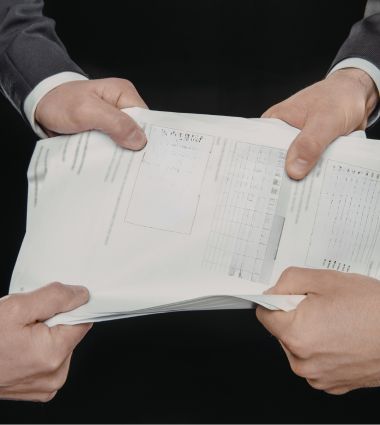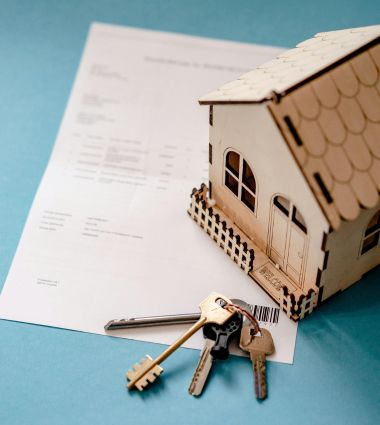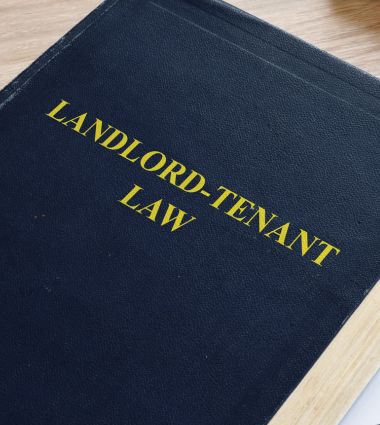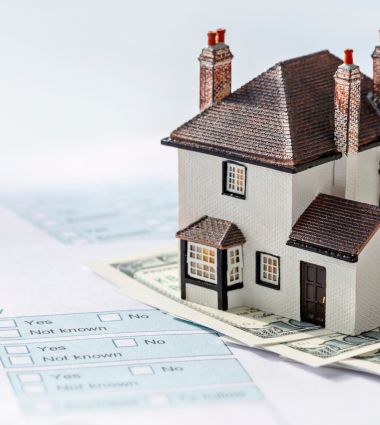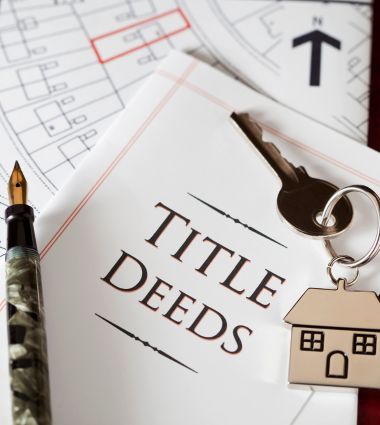Five Questions To Ask Before You Refinance Your Mortgage
Thinking about refinancing your mortgage?
Refinancing your mortgage allows you to re-consider your existing home loan and potentially secure a lower interest rate or more favourable terms. Refinancing sounds tempting, but it comes with costs and drawbacks to weigh.
Before taking the step, think deeply about these five important questions.
What is your motivation to refinance? How long do you plan on staying in your home? Have interest rates dropped enough since you locked your current rate? How much equity do you have available to tap? And lastly, what closing costs will you experience and how do they compare to potential savings?
Thinking about these important points will help you decide if refinancing is the right financial move applied to your situation. Think carefully about these questions and weigh the advantages and disadvantages to make a decision that will benefit your long-term financial well-being.
What is Mortgage Refinancing and How Does it Work?

Refinancing your mortgage basically means taking out a new mortgage to replace your existing one. This new loan pays off the remaining balance on your current mortgage, ideally at a lower interest rate or with better terms.
The main reasons homeowners choose to refinance include:
- Securing a lower interest rate to save on monthly payments
- Shortening the loan term to pay off the mortgage faster
- Tapping into home equity to access cash for renovations, debt merger, etc.
Breaking Down the Process
The refinancing process involves applying for a new mortgage, just like when you first purchased your home. Here are the standard steps:
- Fix your goals for refinancing and research lenders/rates
- Collect financial documents (income, assets, credit reports, etc.)
- Complete your mortgage application and submit it for approval
- Have your home inspected to know its current market value
- Review and sign the closing paperwork to finalize the new loan
Once approved, the new lender will pay off your existing mortgage balance. After that, your new mortgage payments will be used to pay off the principal and interest on this new refinanced loan.
Benefits and Drawbacks
On the plus side, refinancing can save you thousands of dollars throughout the loan if you lock in a lower interest rate. It can also let you access equity built up in your home.
But the process does involve upfront costs like inspection fees, closing costs, and penalties for breaking your original mortgage term early on. You'll need to calculate if the long-term savings outweigh these initial expenses.
Choosing the Right Time
Perfect conditions for refinancing include having solid credit, equity built up in your home, and interest rates lower than your current mortgage rate. Even a small rate reduction can translate into big savings over decades of payments.
Many homeowners will refinance their mortgage when their renewal period is coming up to avoid penalties. But if the rates have dropped majorly, it may make sense to eat the costs and refinance quickly.
Making the Choice
Refinancing isn't the right move for everyone — so it's smart to talk to a mortgage professional to understand all the implications for your specific financial circumstances.
They can do the work for you like calculating the numbers and help decide if the long-term benefits of refinancing are beneficial for you.
Questions to Ask Before Refinancing Your Mortgage
Refinancing your mortgage can be a smart financial move, but it's also equally important to carefully assess your situation before making this decision.
Here are five key questions to ask:
1. Will Refinancing Truly Benefit My Current Situation?
The main reason for refinancing is to secure a lower interest rate, which can save you thousands of dollars over the life span of your loan.
But, it's also important to know the costs associated with refinancing, such as examination fees, closing costs, and the possible penalties for breaking your current mortgage. Do the maths to confirm that the savings outweigh the expenses.
2. How Much Does It Cost to Refinance?
Refinancing usually involves different fees, including application fees, appraisal costs, legal fees, and possible mortgage loan insurance premiums. These can add up quickly, so it's necessary to add them to your calculations beforehand.
As a general rule —- refinancing may be profitable if the savings from a lower interest rate can offset the costs within a reasonable timeframe, often around two to three years.
3. What's My Current Home Equity?
Home equity refers to the portion of your home's value that you own outright, calculated by subtracting your outstanding mortgage balance from your property's current market value.
Lenders generally require a certain level of home equity —- usually 20%, for approval of a refinance. If the equity is lower, you will have to explore options like mortgage loan insurance or a higher interest rate.
4. Should I Choose a Fixed or Variable Rate Loan?
When refinancing, you'll have to make a decision between a fixed-rate mortgage, where your interest rate remains constant throughout the loan term, or a variable-rate mortgage, where the rate fluctuates based on market conditions.
Fixed rates offer stability and predictability, while in contrast variable rates can be lower in the start but carry the risk of future rate hikes.
5. What Documents Do I Need to Provide?
Lenders will require various documents to evaluate your refinancing application, including proof of income (such as pay stubs or tax returns), asset statements, and information about your current mortgage. These documents can simplify the process and prevent delays if they are available readily.
Refinancing is a major financial decision in one's life, and it's important to carefully weigh the pros and cons based on your situation. Consulting with a trusted real estate lawyer or a mortgage professional can provide guidance and help that the refinancing process aligns with your long-term financial plans.
Do You Need a Real Estate Lawyer to Refinance Your Mortgage?

Mortgage refinancing involves replacing your current mortgage with a new loan, often with different terms or rates.
This process can provide several benefits, such as securing a lower interest rate, accessing equity in your home, or consolidating debt.
But, it's also important to understand the legal effects and requirements.
Legal Requirements in Canada
In Canada, the legal requirements for refinancing a mortgage can change depending on the province or territory.
Some jurisdictions may not require the involvement of a real estate lawyer, but it's generally recommended to have legal representation by your side to protect your interests and comply with the local laws and regulations.
Benefits of Hiring a Real Estate Lawyer
Hiring a real estate lawyer can offer some advantages when refinancing your mortgage:
- Contract Review: A lawyer can thoroughly review and explain the terms and conditions of the new mortgage contract, so you know your responsibilities and rights.
- Title Search: They can conduct a title search to verify ownership and identify any outstanding liens, encumbrances, or issues that could affect the process of refinancing.
- Legal Advice: A lawyer can provide legal advice on the potential risks, consequences, and implications of refinancing, helping you so you can make a decision based on facts.
- Closing Process: They can handle the closing process, including preparing and reviewing documents, facilitating the transfer of funds, and confirming the proper registration of the new mortgage.
Cost Considerations
Hiring a real estate lawyer does involve additional costs, but the peace of mind and legal protection they provide are no match. It's also necessary to weigh the costs against the potential risks and complexities of the refinancing process.
In some cases, the lender may cover a portion or all of the legal fees linked with the refinancing.
Let’s for example consider the case of Sarah and Mike, who decided to refinance their mortgage to access equity for home renovations. They initially considered handling the process themselves to save costs.
But, after consulting with an experienced real estate lawyer, they found out that their property had pending charges from a previous contractor, which could have complicated the refinancing process. The lawyer helped them resolve this issue, for a smooth and legally compliant refinancing.
Legal representation is not always compulsory, but when utilized properly —- it can provide valuable protection and guidance throughout the refinancing process.
Consult with a reputable real estate law firm to understand your specific legal requirements and come to a decision that matches your financial goals and circumstances.
Refinancing your mortgage is a big financial decision that requires a thorough reflection of your unique situation and goals. By asking yourself the right questions, you can know if refinancing makes sense for you or not.
Do your research — calculate those numbers —- weigh the pros and cons —- and come to a decision!
Refinancing your mortgage can lead to real savings and better loan terms if done right. But it also involves fees, closing costs, and the risk of higher rates in the future.
Ask yourself these 5 important questions, understand the importance, and then make a choice that supports your financial well-being.
Real Estate
Family Law
Wills & Estates
Immigration
Join Our Mailing List.
Sign up with your email to receive our newsletter and stay informed about the latest legal developments and special offers.





